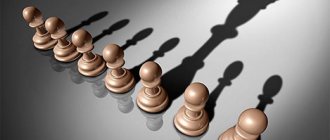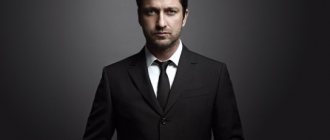This article gives practical advice on how to become a healthy person without drugs or any magic. You can use the advice that will be given here, and it depends only on you whether you will be healthy or constantly sick.
Many people do not know that various diseases that occur in the body are the result of wrong behavior and even bad thinking. Below are the conditions for acquiring health and longevity that Ayurveda talks about.
How not to waste money on dummies
If your immune system fails and you still get sick, at least try not to make it worse. Your health is in your hands, and even doctors cannot always be trusted: sometimes they prescribe medications whose effectiveness has not been proven by research. Find out why this happens and how to distinguish good medicine from pharmacy trash.
Read article →
Improving health in summer: methods and recommendations
Summer is the best time when you can relax fully with the whole family. Schoolchildren have a busy school year behind them, and parents have a responsible job. You dream of spending your vacation in such a way that it becomes unforgettable: visiting exotic countries, exploring unknown corners of your native land, visiting picturesque places of nature, getting a lot of vivid impressions. Make your vacation not only pleasant, but also beneficial for the body. Your first priority is to improve your physical health. You will recover from winter and thoroughly prepare for the next cold weather. The three summer months are ideal because... you get a lot of possibilities. Read more…
5
How to quit smoking: 11 best ways, according to scientists
Since cigarette addiction is more psychological than physical, to get rid of it you need to find some truly effective method. It will be different for everyone. We offer 11 good ways. One of them will probably suit you, and maybe even several.
Read article →
It's time for colds. 10 most common colds and their self-diagnosis
Autumn, winter, cold, frost, wind - anyone can easily catch a cold or, worse, become seriously ill. According to statistics, almost every person catches an average of three colds a year. And in terms of the frequency of diseases, colds are generally in fourth place. Often, with the first cold weather, a cough begins to appear, a headache, and weakness overcomes. Some people immediately begin to sound the alarm and call a doctor, while others, on the contrary, even feeling very unwell, chalk it up to simple fatigue, loss of strength, or overwork. But it is quite difficult to determine the actual cause of your condition without having the appropriate knowledge. We suggest that you become a little more experienced in this matter. Read more…
6
A short workout for those who sit a lot
Probably everyone has heard that sitting is almost as harmful as smoking. It is not always possible to reduce the time spent in a sitting position: after all, work requires it. But you can reduce the harm by adding more movement to your life. We offer an interesting workout that will take only 20 minutes, stretch clogged muscles, keep your body toned and help you burn more calories.
Read article →
Psychoimmunology – strengthening the immune system through mental health!
Psychoimmunology is a branch of medical science that studies the interaction of the human nervous and immune systems. For a long time it was believed that the nervous and immune systems were completely autonomous and not directly connected. And sayings like “a healthy mind in a healthy body” and “the wounds of winners heal faster” were perceived mainly as beautiful allegories. Now no one denies that the state of the psyche and the body’s defenses are closely interconnected. Moreover, a person can consciously use this connection between the two systems and test for himself how optimism helps recovery. How? Read more…
3
How to train so you don't turn into a wreck at 40
A short workout is better than no workout, but full and regular exercise is even better. And for those who are already over 30, this is simply necessary. To maintain the youth, strength and beauty of the body that you are so accustomed to, you will now have to put in a little more effort. Scientists have found out which training method has a rejuvenating effect at the cellular level and saves you from a bunch of age-related diseases.
Read article →
Emotions and health: how they are interconnected
Knowledge about the influence of emotions on health has existed for a long time, and it came from ancient times. At the level of intuition, we all feel that there is, of course, a connection between them. And each of us notices their influence in everyday life and learns mental self-regulation. Scientific evidence has already been obtained about the influence of emotions on human health. The English neurophysiologist Charles Sherrington defined the following sequence: emotions are born first, followed by changes in the physical body. American scientists are developing a theory on how to prevent diseases by studying the emotional background of a person. Let's explore this topic a little. Read more…
4
The formula “10–3–2–1–0” will give you a sound sleep and a cheerful morning
One of the prerequisites for the health of the brain and the whole body as a whole is sleep. If you're tired of confusion, absent-mindedness and circles under your eyes, try the 10-3-2-1-0 formula from fitness trainer Craig Ballantyne. It's easy to remember, but not so easy to apply!
Read article →
The most dangerous mistakes of a healthy lifestyle: Running until you have a heart attack and starving until your muscles atrophy
Unfortunate athletes who started grueling training too quickly tear ligaments and run marathons until they have a heart attack...
Photo: EAST NEWS
The miscalculations of those who have embarked on the path of a healthy lifestyle were commented on by an endocrinologist at the University Clinic of Moscow State University, Candidate of Medical Sciences, senior researcher at the Faculty of Fundamental Medicine, Department of Age-Associated Diseases, scientific director of the Systemic Medicine Clinic, host of the Internet channel “Notes” Doctor Pavlova", Zukhra Pavlova.
Rush to victory
It would seem that what could be better than the intention to start a new life on Monday - healthy: eat right, play sports. A person will lose weight, look younger, and his health and mood will improve. Can a healthy lifestyle (that’s what a healthy lifestyle is called - editor’s note) be bad? Maybe, and how!
“Having listened to bloggers, looked at the example of their girlfriends, and received a doctor’s warning, people decide to lead a healthy lifestyle. And where do you need to start? Move a lot. "Movement is life!" - says Zukhra Pavlova. “True, before that, many of them had been doing squats on the sofa for years as a form of physical exercise. And then, inspired, we immediately rushed to the treadmill. Maybe there was no need to immediately run, lift the barbell, and do the splits? Should you start with walking, swimming, light fitness? So that the loads are feasible for an untrained body. Unfortunate athletes tear ligaments, run marathons until they have a heart attack ... Or they quit the race, deciding that all this is too difficult and not for them.
The second item on the list of those who have taken up a healthy lifestyle is proper nutrition. It most often means some kind of diet that is fashionable at the time: a protein-free diet, a keto diet, a carbohydrate-free diet, etc. - whatever you like. But this is also not physiological. Firstly, these diets have contraindications and can aggravate existing diseases. Secondly, a diet is a temporary reduction in nutrition according to some indicators. And you can’t keep it forever. And a healthy lifestyle is something that you should stick to for decades, that is, forever! An incorrectly chosen diet can really ruin your health. And in the “mildest” case - sit on it until a breakdown, when a person sweeps away everything.
Recently, it has become very fashionable to listen to the advice of gurus from the Internet: somewhere on Instagram they advise how to lose weight, get rid of all diseases, and so on. Do these Insta-healers understand what they are recommending? Most often not. At best, this is all verified solely from personal experience. But it is not a fact that it will not harm another person.
For example, there are now significantly more young patients diagnosed with thrombosis in clinics. It turned out that many of them, following advice from the network, took vitamin D - it is extremely important and beneficial for our body, you can’t argue with that. But it is generally known that vitamin D is best absorbed in combination with vitamin K2. So they drank them in tandem. The fact that dietary supplements are guilty of violations of the composition - after all, there is no such strict control over them as over the production of drugs - is also now a common place. The declared K2 was not always in the form of menaquinone 4 or 7, and not just in the form of vitamin K. Vitamin K increases blood clotting, and many of us already have a tendency to form blood clots. Plus, smoking and using hormonal contraceptives increase the risks. Even the fact that you don't drink enough clean water makes the situation worse! All this adds up - and now blood clots occur in a person who leads a healthy lifestyle.
— So even harmless vitamins are not so harmless?
— Yes, uncontrolled intake of vitamins and dietary supplements is a real problem. For example, biohacker Sergei Fage is widely popular; Komsomolskaya Pravda also wrote about him. And he talked about what vitamins and microelements he takes according to what regimen. I have already had two patients whose health was undermined by these schemes. And the whole secret is that Fage’s dosage regimen was prescribed by doctors, taking into account the characteristics of his body! This diagram cannot be copied.
Uncontrolled intake of vitamins and dietary supplements is a real problem.
Photo: GLOBAL LOOK PRESS
Ride on handbrake
- Well, where can you find a doctor like Sergei Fage to prescribe vitamins for you?! Maybe it’s enough to just listen to your body? If he reacts positively to diet or exercise, is that good?
“I often come across the fact that patients tell me: “My body tells me to do this, and not as you advise, doctor!”
Let's say there is such a method, episodic (one-day) fasting. For example, on Wednesdays we do a fasting day - we don’t eat anything, we just drink water. And for some people this method works great! I myself am not a supporter of fasting, only for certain indications, for example, neurodegenerative diseases, but the effectiveness of the method is confirmed by research. However, for many, unloading will not only be painful, but will also not give positive results. Quite the contrary. The next days the person will eat more and, accordingly, store fat.
But now intermittent fasting is becoming fashionable. Its supporters claim: you can eat without restrictions from 12 to 20 hours. And the body must fast for the remaining 16 hours of the day. The result is this: firstly, during the permitted 8 hours, some adherents eat in reserve - after all, it is allowed! And secondly, with this regime they skip breakfast. But it has been proven by many studies: if you want to be healthy, eat breakfast! Here's how the body works: our adrenal glands and gastrointestinal tract are very active in the early morning. And at this moment a person must eat! And not just porridge - that is, carbohydrates. It is necessary that a small portion of porridge be accompanied by proteins: eggs, or cottage cheese, or meat, or poultry, or fish, or low-fat cheeses. If you don’t have breakfast, it turns out that the hormone cortisol, which was produced by the adrenal glands, has a reasonable right to destroy muscle tissue, since there are no protein reserves other than muscles. And the need for it exists every minute. And yet, it is important to remember that cortisol is a two-faced Janus: it is catabolic, that is, destructive, in relation to muscle tissue, and anabolic (that is, accelerating formation), in relation to fatty tissue. Especially when there is a lack of protein in the diet. So what is the improvement here if the body regularly loses one of its most valuable components - muscles?!
And they object to me: “Yes, I can’t get a piece of food in my throat in the morning! I can’t have breakfast, my body gets along just fine without it.” Well what can I say? Our body really knows how to adapt to different conditions very well. If you don’t feed him breakfast for years, he won’t demand food in the morning. But a car with a handbrake can also drive. Only with squeaking, sparks and brake pads will wear out. It’s the same in humans: the body adapts to the absence of breakfast. But how long will its safety reserves last?
By the way, when my patient says that he doesn’t want to eat in the morning, I immediately ask him what time does he go to bed? Is it deep after midnight? These are interconnected things.
So the big question is whether we always hear our body's signals. And are we interpreting them correctly...
When to drink water is harmful to health
— Yes, by the way, about the interpretation of body signals. Everyone probably already knows that without a certain skill it is difficult to understand whether you want to eat or are thirsty. Many people gain weight by doing this, instead of drinking water and losing weight.
— By the way, here is another mistake of those who zealously rush into a healthy lifestyle. Everyone now knows that you need to drink as much water as possible - at least 2 or even 3 liters. And indeed it is. Moreover, no other drinks - tea, coffee, juices - are counted. Quite the opposite: for every cup of coffee or tea you drink, you need to add a glass of clean water to compensate for the loss of fluid due to the diuretic effect. People decide to lead a healthy lifestyle and start drinking water.
But in case of heart failure and some kidney pathologies, the amount of liquid drunk, on the contrary, should be limited! These are rare exceptions, but they still exist. And someone may feel worse because of such a useful habit. True, such patients, as a rule, are aware of their pathologies.
In case of heart failure and some kidney pathologies, the amount of fluid you drink should not be increased, but limited!
Photo: GLOBAL LOOK PRESS
— And among supporters of a healthy lifestyle, it is customary to brag about who lives on what minimum calories. Previously, 2000 kcal per day (on average) was considered the norm. But now they say it's too much. Modern city dwellers, they say, move too little to expend such an amount of energy. Therefore, you need to consume 1100 kcal per day. And no more.
- You know, when they tell me that I live comfortably on 1100 kcal per day and feel good, I always say: let’s do the math. As a rule, a person did not take something into account. Because 1100 kcal is too little. At this minimum you will be hungry. And a breakdown is inevitable.
But, by the way, often errors in calculations are not even the person’s fault. Food manufacturers, especially those that supply “healthy foods” in ready-made kits, often downplay the calorie content of dishes. And you start to recalculate on the calculator, and there are not 1100, but 1600 kcal. That is, just the norm. But the buyer is sure that he lives on 1100 kcal per day and does not feel hungry. Look, he thinks how cool, great products, I’ll buy more!
“But maybe it’s normal to eat not from hand to mouth.” And then “work off” what you ate in the gym, working out seven days a week until you break a sweat?
- Let's be realistic: only professional athletes have time to work out until they sweat seven days a week. And most of us work 5 days from morning to evening, plus household chores and family. When will you find time to train here? At best, a couple of times a week. And so we work hard in the gym on Mondays and Thursdays with a feeling of guilt, then our muscles are like stone, buzzing! Nothing, we think, but in general we are becoming healthier!.. It hasn’t happened at all! We're only making it worse. Because in this load regime the training effect cannot be achieved. On the contrary. What's the matter? Such an athlete will constantly be accompanied by inflammation - this is what manifests itself as muscle pain. Occasional heavy loads on the body are stressful! It has a destructive effect on our body.
But when you exercise regularly, preferably every day, even if it’s just exercises or some kind of set of exercises, then the need of muscle tissue for energy becomes constant. And from some point on, systematic exercise no longer causes stress. Inflammatory factors cease to be released during daily workload, even if it gradually increases. The body really “loves” rhythm. The great Russian physiologist Ivan Pavlov once wrote about this.
“That is, those who say: “Everyone has time to train, except lazy people” are right. Get up an hour early, put your sneakers on your feet, and run to the nearest park! And excuses are for weaklings!”
— There is a Chinese proverb: morning jogging will lead you straight to a heart attack. This means that immediately after waking up, exposing your body to heavy loads is harmful. Firstly, you need to get enough sleep: from 11 pm to 7 am. You cannot sacrifice sleep even for the sake of training. Secondly, early morning jogging is completely unphysiological. Start your morning with a glass of warm water. Then a little physical activity to get the body turned on - stretching, meditation, yoga, breathing exercises. Have breakfast. But do not drink tea and coffee for at least another hour - due to the tannins contained in these drinks, beneficial substances from food are less absorbed.
Drink your cup of coffee when you arrive at work. And at this time, by the way, the most physiologically suitable time for playing sports begins. What to do? I myself am working at this time. During a break between patients I say: wait a minute! And I do some squats and push-ups. This way I force the largest muscles in the body to work. Of course, they could be worked out better in the gym. But when will I get to the gym?
I have several such breaks during the day. And everyone can do the same. Use every opportunity to move: walk to the printer, take papers to another floor. Do not take the elevator, but walk up the stairs. And if you have the opportunity to go for a run a couple of hours after you wake up, then run for your health.
5 STEPS TO A HEALTHY LIFE
1. Before jumping into the abyss of a healthy lifestyle, consult your doctor. And not with just anyone. Unfortunately, finding a competent and interested specialist will not be easy. This could be an endocrinologist or a therapist. Specialization is less important than the fact that the right doctor asks you all the details of your life: when you go to bed and get up; what and when you have breakfast, how you work, how you relax. Only after collecting a complete history can you make specific recommendations.
Of course, a doctor from an ordinary district clinic simply cannot afford this - he has 12 minutes for an appointment. Look for doctor recommendations. While the search is ongoing, you can proceed to the next steps that will not harm.
2. Train yourself to go to bed on time. Leave all the excuses: you need to be in bed by 11 p.m. Moreover, an hour before this, you need to put aside smartphones, tablets, turn off the TV - everything that creates a blue glow from the screen, which destroys the production of the sleep hormone melatonin. You can read it. Moreover, even e-books do not contain harmful blue spectrum.
Ideally, sleep should be 7 - 8 hours.
3. Move as much as possible. Walk where possible. Squat near your desk. Run a race with your dog. Short dashes are better than lack of movement and early sedentary death syndrome (this diagnosis was identified in 2010 quite realistically).
4. Learn to drink water! Just start - that's the hardest part. When you get involved, you will understand that it is not as difficult as it seemed at first. And remember, just one factor - water temperature - entails a whole range of consequences, positive or negative, for your health. Therefore, drink warm water! Over time, you will understand that this is the most delicious drink and your body will not remain in debt.
Norm: at least 2 liters per day. The calculation formula is 35-40 ml per kg of body weight.
5. Eat rationally and variedly . But move on to proper nutrition step by step, don’t throw yourself into it like into a pool. Accustom yourself to a new lifestyle gradually so as not to cause sudden rejection.
By the way, people often feel a huge effect after having already taken the first few steps towards a healthy lifestyle. And they are surprised: “Wow, we knew all this - that we need to sleep enough, move and drink water. But it turns out it actually works!”
BY THE WAY
The Komsomolskaya Pravda publishing house has published a book by the famous blogger Maria Popova, “The Dark Side of a Healthy Lifestyle. How to avoid getting sick while trying to get healthy." The book will help you understand the most popular myths and misconceptions about proper nutrition and regular exercise. You'll learn why hard training doesn't always lead to good health. Should you give up coffee and switch to superfoods? Do I need to get tested regularly to monitor my condition? And who (or what) is the main enemy of those losing weight. You can buy the book using the link.
Healthy man
There are general criteria that define a healthy person. In a physical context, this is a person who does not have bad habits and plays sports. In a psychological sense, a person who is in harmony with himself and others, looks at the world positively, and adheres to moral principles. Everyone wants to interact with such people in order to recharge from their positive aura. Let's look at how to lead a healthy lifestyle and who can be called a healthy person.
Physiological level
It is believed that if there is no disease, one can be considered healthy. However, this is not entirely true, because the disease is usually detected during a routine examination and does not make itself felt for a long time. It is important not only to feel well, but also to follow medical recommendations.
At the physiological level, health indicators are as follows:
- There is plenty of energy to carry out everyday activities. This includes work and everyday life. It is important to feel like a happy and healthy person;
- Full sleep. Easy awakening, immediate start to daily activities, feeling of vigor and energy;
- Regular bowel movements. If this does not happen at least once a day, this may indicate slagging. The consequence of this is a weakening of the immune system and loss of strength.
External indicators
A healthy person usually does not suffer from extra pounds; his complexion, skin and smile give him away. External indicators:
- Smile. A person’s gums and teeth have a healthy color - he eats the right food, there are no intestinal diseases. Gums should not have a purple or dark red tint, because such a color can indicate existing diseases;
- Hair. Brittle and oily curls usually warn of pathologies. A person should have shiny hair without noticeable damage. If they are very dry, this may indicate vitamin deficiency or a lack of amino acids in the diet;
- Language. The tongue should be pink, with no white or yellow coating.
Add some greenery
Any leafy green - be it kale, spinach or arugula - is the healthiest food in the world. They are full of vitamins, minerals and fiber, but have virtually no calories. They are worth adding to any dish if you want to prevent aging, improve your heart function and get rid of excess cholesterol. The same applies to seasonings that contain important phytonutrients that prevent disease. Use as much basil, cilantro, mint and parsley as possible when preparing your dishes, and within a few weeks you will notice how energized you feel.
Psychosomatics or whether our emotions affect health
There is a widespread belief that any health problems are a consequence of the influence of any external factors on a person: the environment in which a person lives, its atmospheric and temperature characteristics, the food and liquid that he consumes, etc. Undoubtedly, there is some truth in this, but the main causes of any disease lie not in the outside world, but in the inner world. And the relevance of this issue only becomes greater with each new generation. So what is psychosomatics? We will answer this and many other questions in our article. Read more…
7
Eat lunch without distractions
We usually eat while watching a new series on Netflix, on the road, or scrolling through the stories of colleagues and important clients. Eating on the go is easy to get used to if you're trying to get the most out of life, but it's extremely important for your health to pay attention to chewing your food thoroughly. Only thorough chewing releases enough digestive enzymes to easily break down food.
What is the ability to relax
Often people forget how important it is to give yourself rest. The ability to relax physically and emotionally is a useful function of the body, which can be forgotten over time. Especially if you have been under constant stress and conflict for a long time.
Internal problems cannot find a way out if you do not know how to relieve tension without resorting to the help of a psychologist. Nevertheless, there are such ways, and there are many of them. It’s enough to find a suitable option for yourself and remember to use it from time to time.
The ability to abstract yourself from unpleasant surroundings and thoughts is the ability to relax. You can do this almost anywhere where you can retire for a few minutes. Failures, problems and other negativity will gradually recede from you.
Minus bad habits
As studies conducted in different countries of the world show, smoking tobacco shortens human life by an average of ten years. And it is also the main cause of lung cancer, from which people die every day around the world. 23% of deaths among men occur among tobacco smokers.
If we take both men and women, then among people who die from smoking, in 48% of cases it causes death from heart disease, blood vessels, and diabetes. About 33% of cancer cases are caused by smoking. In approximately 18%, people die from respiratory diseases.
Tobacco smokers risk death
- from emphysema and bronchitis 12 times more than non-smokers;
- from oncology of the lungs, trachea, bronchi - 23 times more often in men and 13 times more often in women;
- from tumors of the mouth, larynx, lips - 5-11 times more often;
- from oncological pathologies of the esophagus - seven times.
If you give up tobacco, the general condition of the body quickly improves.
- After a few months, the cough decreases, breathing becomes easier, and the person is less likely to suffer from bronchitis and pneumonia.
- After two weeks to three months, blood circulation becomes better.
- After a year without tobacco, the risk of coronary disease is two times less.
- Two years without smoking reduces the risk of stroke to the level of non-smokers.
- If you don't smoke for five years, your risk of developing a tumor in your mouth, throat, esophagus, bladder, or cervix will be the same as for others.
- Those who have not smoked for more than ten years have half the risk of developing cancer of the lungs, pancreas, and larynx than smokers.
Another bad habit that should be abandoned to make disease prevention effective is drinking alcohol. According to WHO, approximately two hundred types of diseases and health problems are associated with the fact that people drink alcohol. People who drink a lot of alcohol are at much greater risk of dying from cancer than others. Alcohol not only harms our body, but also causes behavioral disorders, which leads to injuries, accidents, and violence.
A dose of only 30 milliliters per day is considered critical. If you drink more, the risk of dying prematurely from a heart attack, stroke, or other heart and vascular diseases increases several times.
If a man drinks more than 60 milliliters at one time (lunch, dinner), and a woman drinks more than 50 ml of pure ethanol, WHO classifies this as abuse. And this is 125-150 ml of vodka, 417-500 ml of red wine or 1100-1300 ml of beer. A dose of two hundred to three hundred milliliters of ethanol can lead to the death of a person.











